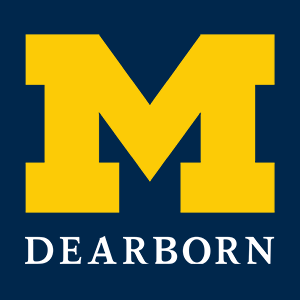LaRico Andres said it’s still a little wild to think that his life now includes being a doctoral student in the Electrical and Computer Engineering Department at UM-Dearborn. His educational journey hasn’t always been the smoothest. After some personal challenges tripped up his plans to go to college earlier in his life, he enrolled in Henry Ford College’s pre-engineering program as a student in his mid-30s. He did well, and decided to transfer to UM-Dearborn, where he met a professor and mentor that would alter the course of his education — and his life.
The Power of Mentorship
Professor of Electrical and Computer Engineering Wencong Su was looking for an undergraduate student to assist with a project focused on adding innovative energy efficiency measures to the already LEED-certified Engineering Lab Building. LaRico reached out, landed the job, and it led to many more opportunities to work alongside Su. On one project supported by the National Science Foundation’s I-Corps, a program that helps researchers translate their laboratory work into marketable products, LaRico traveled to conferences in Orlando, San Diego and Austin, completing a flurry of more than 100 interviews with industrial professionals in seven weeks about a product Su’s lab was developing. On another project, he and Su created an app that used the ELB’s HVAC management software and the utility’s fuel profile to give users an idea of what being a building occupant added to their personal carbon footprint.
Energy Injustice
One of their most impactful projects grew out of their 2023 Summer Undergraduate Research Experience collaboration in which LaRico helped create an interactive mapping tool that explores the connection between historical real estate redlining and disparities in energy access in metro Detroit. Using LaRico’s “Seeing Energy Injustice” dashboard, users can quickly toggle through different layers and explore whether a neighborhood is formerly redlined, where current utility outages are and their causes, locations of renewable energy installations and EV charging stations, as well as census data that provides demographic information about the people currently living in the neighborhood. One of the big reveals from LaRico’s work is that metro Detroit neighborhoods that were historically redlined tend to be lower-income, non-white, have power outages that tend to be longer, and have less access to renewable energy and EV charging infrastructure. His work on the app led to an IEEE conference publication in 2024 and another for the IEEE Power and Energy Society General Meeting in 2025.
LaRico said that grad school honestly wasn’t on his radar when he initially transferred to UM-Dearborn. But after working in Su’s lab, and particularly on the energy justice-focused mapping project, he said his perspective began to change. “If I did the safe thing and got a job, yeah, that would help me. But working with Professor Su helped me see what it is that I really wanted to do. And what I really wanted to do was help people,” LaRico said.
Pursuing Doctoral Studies
LaRico decided to take a chance and continue his education, enrolling in the department’s doctoral program, where he’s now continuing his work alongside Su. Not surprisingly, energy justice topics are rising to the top of their list for his dissertation research. One idea they’ve been kicking around recently is creating a machine learning-based app that would use weather and outage data to forecast the likelihood of power outages, sort of like the snow day prediction models that have become super popular with parents and kids. A technology like that could help utilities and community stakeholders identify where they need to upgrade their infrastructure to make it more resilient. But it could also directly help people plan for outages, so they could charge their batteries or stock their pantries.
LaRico said the future he’s contemplating for himself now is much different than the one he was thinking about even just a few years ago. For now, he’d love to continue to do research in the power energy systems and energy justice fields, developing innovative ways to help people. He also wants to start a nonprofit that gets young people excited about things like sustainable energy technologies and creating smart cities. Ultimately, if all goes well, he’d love to be a college professor just like his mentor. “It’s funny, the opportunities that come up in your life,” LaRico said. “What if I hadn’t stepped out and emailed professor Su? He saw something in me that I didn’t even know about myself. And he probably doesn't even know how many other people that’s going to touch. My daughter and little cousins, they all get to see that impact, ‘Hey, Uncle Rico is gonna be a doctor.’ Because of Professor Su, I’m setting a new example for the people in my life. My entire family and my closest associates, everybody is, like, ‘Wow, you always were smart.’ I just went the long way. And I’m just thankful I have an opportunity now to make an impact in the community.”


